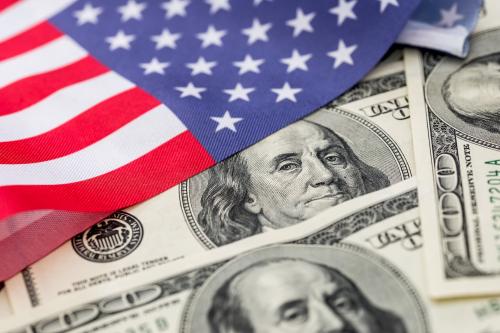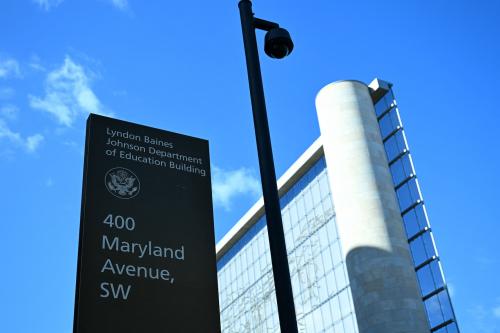Is Joe Biden too old to serve a second term as president? Most Americans think he is. But what if they are wrong, and what can Biden do to convince them that they are wrong?
The polling data tell a clear story. A recent Yahoo/YouGov survey found that 67% of Americans, including 48% of Democrats, think that Biden is too old for another term, and only 35% believe that Vice President Kamala Harris would be ready to step in as president if it became necessary. By contrast, only 42% think that former President Donald Trump is too old to run again. In a recent NBC survey, 70% of the respondents said that Joe Biden should not run again, and about half of them said that Biden’s age was a “major factor.”
The people have specific age-related concerns. In the Yahoo/YouGov survey, 70% of respondents said that they were concerned about Biden’s health and mental acuity (50% were “very” concerned). And a recent Washington Post/ABC poll found that only 33% of Americans thought that Biden had the physical health to serve a second term, and only 32% thought that he had the necessary mental sharpness. By contrast, 65% of Americans believe that Trump has the needed physical health, and 54% that he is mentally sharp.
Former Ambassador Nikki Haley, a candidate for the Republican presidential nomination laid out the issue in the bluntest of terms.
“He announced that he’s running again in 2024, and I think that we can all be very clear and say with a matter of fact that if you vote for Joe Biden, you really are counting on a President Harris, because the idea that he would make it until 86 years old is not something that I think is likely.”
But is Biden really likely to die before age 86, which is what he would be at the end of his second term? The Actuarial Life Table published by the Social Security Administration gives the average male at age 82 a 67% chance of living to 86 — for Biden that gives him a full second term in office.[1] Using the same data set, Trump, who will be 77 next month, has a 73% chance of staying alive to the end of his second presidential term.
There are other factors that increase these odds. Neither Biden nor Trump is your average American male. They are both white, well educated, well-to-do, non-smokers, and teetotalers. Many studies show the relationship between these factors and the chances of living longer and healthier are strong.
For instance, studies have shown a very strong link between years of education completed and longevity. One study from Population Bulletin “… shows wide variation in mortality rates by educational attainment for both white women and men.”
Another study shows that over time the relationship between education and longevity has gotten even stronger. This study from the Proceedings from the National Academy of Science found that “the lifespans of those with and without a bachelor’s degree started to diverge in the 1990s and 2000s. This gap grew even wider in the 2010s as the life expectancy of degree-holders continued to rise while that of other Americans got shorter.”

If having more years of education is related to longevity, so is higher income. (These factors are related, of course.) Hilary Waldron used Social Security data on taxable wages to look at the effect of income on longevity. Her data shows that for men, higher income is definitely related to longer life expectancy.[2] Although Joe Biden is not nearly as rich as Donald Trump, they both have earned much more than the average American male throughout their lifetime.
The following table, taken from her work, illustrates the direct relationship between income and longevity by showing life expectancy for male workers at age 65, by birth year and earnings.

Fifteen years ago, Emily Rogalski, a neuroscientist researcher at Northwestern University, coined the phrase, “SuperAgers,” to refer to elderly people who had lost little or none of their cognitive abilities and who in their 80s were as mentally agile as people in their 60s or 70s.
The “SuperAgers” are all around us. The actress Betty White who died just one month short of her 100th birthday was charming audiences well into her nineties. Nancy Pelosi, the former Speaker of the House who just stepped down, has been heralded as the best Speaker in American history. She did it in her eighties and in high heels.
This label probably applies to Joe Biden and Donald Trump, according to longevity researcher S. Jay Olshansky and his team at the University of Illinois. They examined the publicly available medical records of both men and concluded that “Biden and Trump are likely to be “super-agers,” a subgroup of people that maintain their mental and physical functioning and tend to live longer than the average person their age.
The available evidence, then, suggest both Biden and Trump will be up to the job. For the public, nevertheless, the age factor seems more serious for Biden than Trump. Although no one knows for sure why this is the case, it cannot be ignored. In politics, appearance is reality, or at least an important part of it. Physical and mental fitness are threshold qualifications for the presidency, as moral fitness used to be.
The only way Biden can convince the American people that they have misjudged him is to show them through speech and deed that he is vigorous, focused, and on top of his job. This means spending more time in the public eye, starting now — more press conferences, more public events, more trips, more visual demonstrations of the president in control. When the presidential campaign begins in earnest, it means public events every day, mixing set speeches and less scripted exchanges with the public, at least five days each week. Spending more than weekends at home will only reinforce the beliefs that Biden wants to dispel.
[1] Authors’ calculations based on the SSA actuarial tables.
[2] Hilary Waldron, “Trends in Mortality Differentials and Life Expectancy for Male Social Security Covered Workers by Socioeconomic Status,” Social Security Bulletin, vol.67, no. 3 (2007) Chart 3.
The Brookings Institution is committed to quality, independence, and impact.
We are supported by a diverse array of funders. In line with our values and policies, each Brookings publication represents the sole views of its author(s).









Commentary
Is Biden too old to be president? Is Trump?
May 19, 2023